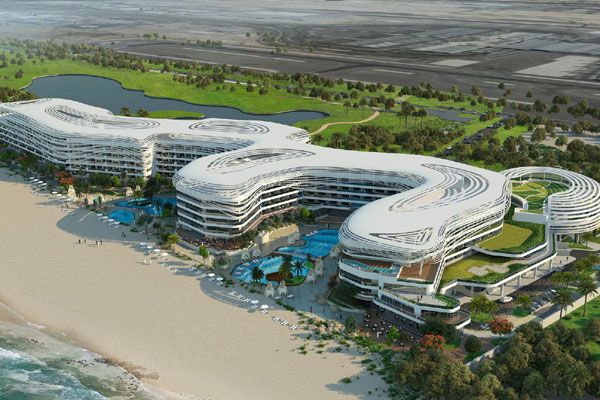

Al Mouj Muscat: Shaping Strategic Finance for Real Estate and Tourism
By: Velorine
Impact in Oman
In the heart of Oman’s capital, Al Mouj Muscat is redefining the role of finance in integrated tourism and real estate development. As one of the country’s leading large-scale mixed-use communities, Al Mouj Muscat is not just a landmark of luxury and lifestyle, it’s also emerging as a case study in how strategic finance can drive long-term value across economic, environmental, and social dimensions.
At the forefront of this transformation is Ahmed Al Massan, Chief Financial Officer of Al Mouj Muscat, who was recently named ‘CFO of the Year’ in the real estate category at the Oman CFO Forum & Awards 2024. This prestigious recognition reflects his visionary approach to financial leadership in a sector undergoing rapid change.
From Project Financing to Portfolio Strategy
Traditionally, finance functions in real estate developments were limited to accounting, budgeting, and project-based funding. But at Al Mouj Muscat, the finance team under Al Massan’s leadership has evolved to play a much broader, more strategic role. The function has transitioned to a portfolio-centric model, assessing performance and returns across a diversified asset base that includes residential, retail, hospitality, a marina, and an internationally acclaimed golf course.
“Finance is no longer just a support function,” Al Massan explains. “It’s now a key enabler of our strategic objectives, helping to balance risk, drive sustainable growth, and support value creation across our entire development.”
This shift has involved greater emphasis on portfolio analysis, cash flow optimization, digital systems integration, revenue diversification, and investor engagement skills that are increasingly vital as Al Mouj Muscat matures into a fully integrated destination and economic hub.
Finance as a Catalyst for Business Transformation
The real estate and tourism sectors, particularly within Integrated Tourism Complexes (ITCs), are undergoing profound transformation. Drivers include changing consumer expectations for experiential offerings, regulatory evolution, sustainability imperatives, and the rise of digital innovation.
In this context, the finance function has become a strategic partner in transformation helping to adapt business models, support ESG initiatives, and ensure robust compliance frameworks. Al Mouj Muscat’s finance team plays a direct role in advancing these goals, ensuring alignment between financial strategies and broader corporate ambitions.
The Digital CFO: A Vision for the Future
Al Massan sees digital transformation as the most critical force shaping the future of the CFO role. He envisions finance leaders as tech-enabled strategists, who not only manage budgets but also drive innovation and agility within their organizations.
“Tomorrow’s CFO must be fluent in data analytics, automation, and risk modeling,” he notes. “We will increasingly rely on real-time insights and predictive tools to guide investment decisions, operational efficiency, and stakeholder communication.”
The finance function is expected to integrate advanced technologies like AI, machine learning, and smart data platforms, elevating its role in business forecasting and value creation.
Guiding the Next Generation of CFOs
For aspiring finance leaders, Al Massan offers a clear roadmap: combine technical financial expertise with digital fluency, strategic thinking, strong communication skills, and adaptive leadership. The modern CFO must act as both a guardian of financial integrity and a catalyst for innovation.
“Success in this evolving landscape means continuous learning and being comfortable leading through complexity. Finance leaders need to inspire teams, engage stakeholders, and deliver impact well beyond the balance sheet.”
Fostering Financial Leadership Through Dialogue
Al Massan also underscores the importance of professional forums like the Oman CFO Forum, which convenes finance leaders to share best practices, examine industry trends, and develop strategic responses to emerging challenges. These events, he says, are essential for building a more connected and forward-looking finance community in Oman and the GCC.
He suggests future editions of the Forum focus on:
- Strategic risk management and resilience
- Cybersecurity and data governance
- Sustainable finance and ESG reporting
- Talent development in the digital era
A Strategic Model for the Region
Al Mouj Muscat stands as a model of integrated urban development, but its success is increasingly driven by the strategic sophistication of its finance function. With leaders like Ahmed Al Massan at the helm, the project exemplifies how finance can help shape not only profitable ventures, but also socially responsible and environmentally resilient communities.
As Oman accelerates its economic diversification and tourism ambitions under Vision 2040, Al Mouj Muscat’s strategic financial framework offers a blueprint for impactful, future-ready real estate development.




































